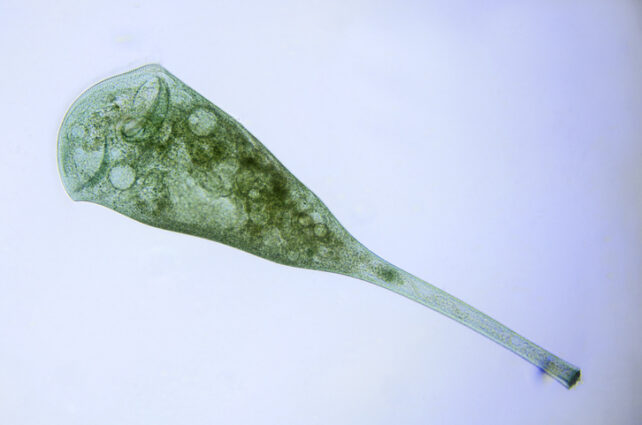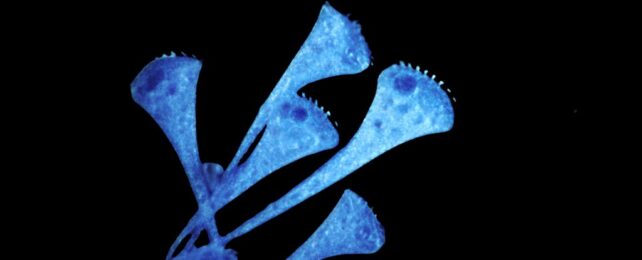From oozing amoebas to our body's own building blocks, individual cells appear to be capable of a complex type of learning typically associated with whole nervous systems, according to new research.
"This finding opens up an exciting new mystery for us: How do cells without brains manage something so complex?" says biologist Jeremy Gunawardena from Harvard Medical School.
The form of learning in question, called habituation, occurs when the response to a non-rewarding stimulus reduces in magnitude the more it is repeated. It describes why wild animals may grow accustomed to the presence of humans, for example, or why a room's unusual smell becomes less noticeable over time.
Max Planck Institute neurobiologist Lina Eckert and colleagues used computer modeling to rapidly test molecular networks inside mammal cells and unicellular organisms called ciliates. They found four molecular networks that each had a double-response system, where one response dissipates much slower than the other.
Such a capacity for varying responses to an impulse defines habituation. Reactions that dissipate slowly can impede a short-term reaction to an impulse, effectively habituating the cell to the stimulus. Once the slow response fades and the faster reaction returns, responses are triggered at their original strength once more.
"We think this could be a type of 'memory' at the cellular level, enabling cells to both react immediately and influence a future response" explains biologist Rosa Martinez from the Centre for Genomic Regulation.
The team have yet to confirm their findings in living cells, but habituation has been demonstrated in the ciliate Stentor coeruleus before.

"Our approach can help us prioritize which experiments are most likely to yield valuable results, saving time and resources and leading to new breakthroughs," says Martinez.
If the researchers' findings hold true and the identified molecular networks are confirmed to act as a form of cellular memory, understanding how they work could reveal ways to prevent our immune system from habituating to the presence of cancer cells.
"It's akin to delusion," Gunawardena explains. "If we knew how these false perceptions get encoded in immune cells, we may be able to re-engineer them so that immune cells begin to perceive their environments correctly, the tumor becomes visible as malign, and they get to work. It is a fantasy right now, but it is a direction I would love to explore down the road."
This isn't the only type of learning recently discovered in cells. Another team recently found cells may also possess the ability to learn through repetition.
"The question of learning outside of animals with brains has been fraught with controversy, which often appears, in historical perspective, to have been as much ideological as scientific," argue Eckert and team.
"Because a single-cell organism must solve the same survival problems as any organism… it may seem reasonable that evolution provided it with elementary forms of learning that are similar to those used by animals."
This research was published in Current Biology.
